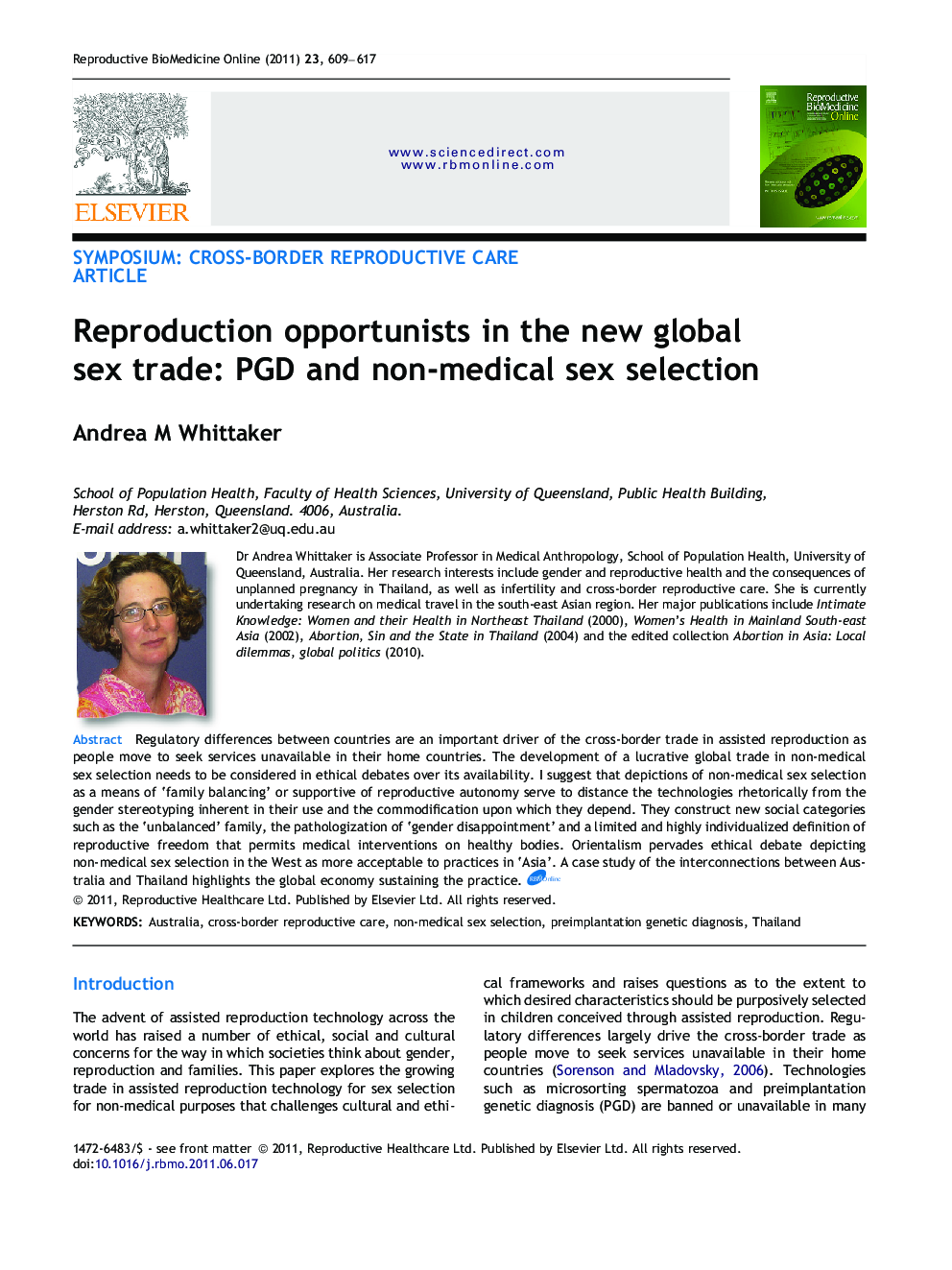| Article ID | Journal | Published Year | Pages | File Type |
|---|---|---|---|---|
| 3971336 | Reproductive BioMedicine Online | 2011 | 9 Pages |
Regulatory differences between countries are an important driver of the cross-border trade in assisted reproduction as people move to seek services unavailable in their home countries. The development of a lucrative global trade in non-medical sex selection needs to be considered in ethical debates over its availability. I suggest that depictions of non-medical sex selection as a means of ‘family balancing’ or supportive of reproductive autonomy serve to distance the technologies rhetorically from the gender stereotyping inherent in their use and the commodification upon which they depend. They construct new social categories such as the ‘unbalanced’ family, the pathologization of ‘gender disappointment’ and a limited and highly individualized definition of reproductive freedom that permits medical interventions on healthy bodies. Orientalism pervades ethical debate depicting non-medical sex selection in the West as more acceptable to practices in ‘Asia’. A case study of the interconnections between Australia and Thailand highlights the global economy sustaining the practice.A lucrative trade exists as patients move across border to avail themselves of reproductive technologies that are unavailable in their home countries due to regulatory differences. This paper considers the trade in one such technology, preimplantation sex selection for non-medical reasons (social sex selection) which is banned or regulated in most countries, but in some settings is available due to a lack of regulations and has become a ‘market advantage’ for some clinics. I suggest that these technologies are inherently gender discriminatory and that our ethical discussions need to include considerations of the commodification of sex characteristics inherent in this new trade. I argue that descriptions of these technologies as a means of ‘family balancing’ or supportive of reproductive autonomy construct new social categories such as the ‘unbalanced’ family, the pathologization of ‘gender disappointment’ and a limited and highly individualized definition of reproductive freedom. They try to characterize sex selection in the West as more acceptable than that carried out in Asian countries. A final case study of the trade between Australia and Thailand highlights the global economy of these technologies.
